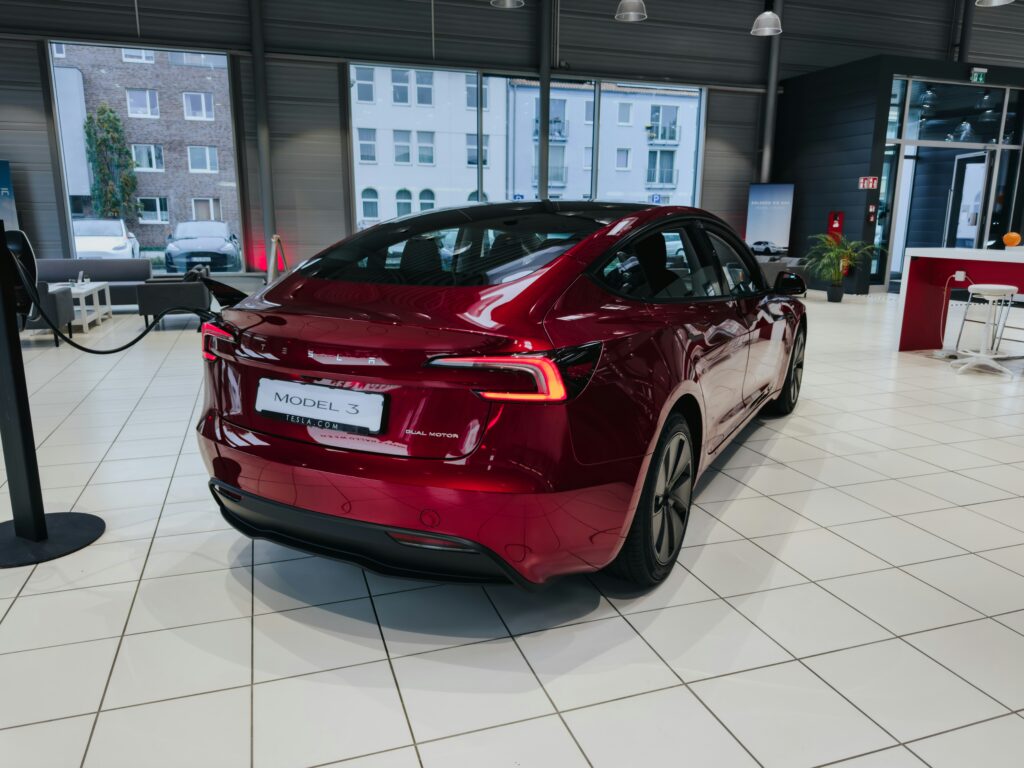
The Significance of Tesla’s Entry into the Indian Market
Tesla’s entry into India represents a pivotal moment for the country’s burgeoning electric vehicle (EV) market. With the Indian government setting ambitious targets for sustainable energy and emission reductions, the arrival of a global leader in electric transportation aligns perfectly with these national objectives. The Indian government has implemented a range of initiatives aimed at promoting EV adoption, including financial incentives for manufacturers and consumers, infrastructure development, and policies designed to make electric vehicles more accessible. This environment creates a fertile ground for Tesla to introduce its innovative solutions, further accelerating the shift towards green energy.
Moreover, India is one of the largest automobile markets globally, presenting a significant opportunity for Tesla to tap into a diverse consumer base. The increasing awareness of climate change among Indian consumers is driving demand for eco-friendly alternatives, making Tesla’s products more appealing. As consumers seek modern, high-tech vehicles, Tesla’s cutting-edge technology and unique business model position it to meet these expectations effectively. The company’s commitment to sustainability not only caters to this consumer shift but also complements India’s aim to enhance its green technology footprint.
Additionally, Tesla’s presence is expected to lead to job creation and knowledge transfer within the Indian automotive sector. As the company establishes manufacturing facilities, it will likely generate thousands of jobs and foster local talent development. Furthermore, sharing technology and best practices can help elevate India’s automotive standards and capabilities in EV manufacturing. This collaboration can set new benchmarks in the industry, pushing other manufacturers to innovate and adopt more sustainable practices. Overall, Tesla’s entry is a landmark event, not only for the company itself but also for the transformation of the Indian automotive landscape toward a more sustainable future.
Elon Musk’s Vision and Strategy for India
Elon Musk’s entry into the Indian automotive market marks a significant step toward integrating sustainable energy solutions in one of the world’s largest economies. Musk envisions India as a pivotal part of Tesla’s global strategy, focusing on electric vehicles (EVs) that align with local demands and environmental initiatives. India, with its rapidly growing urban population and increasing air pollution challenges, presents Tesla with a unique opportunity to promote electric transportation as a viable solution.
A key aspect of Musk’s strategy involves understanding and adapting to the local market dynamics. This includes plans for local production to mitigate import tariffs and logistics costs. By establishing manufacturing facilities within India, Tesla aims to produce EVs at competitive prices while also creating local job opportunities, fostering economic growth, and enhancing its brand presence.
Strategic partnerships with Indian manufacturers can further solidify Tesla’s position. Collaborations with local suppliers can ensure a more efficient supply chain, facilitating the procurement of essential components and materials. Additionally, these partnerships can help Tesla navigate India’s complex regulatory landscape. Engaging with local stakeholders will be crucial for compliance and could lead to favorable policies that encourage sustainable practices within the automotive sector.
Moreover, Tesla’s approach towards adapting its business model to the Indian demographic consideration cannot be overstated. Incorporating features that resonate with localized preferences, such as affordability and robust after-sales service, will be integral to capturing the attention of Indian consumers. Understanding cultural nuances and consumer behavior will further guide Musk’s strategies tailored for India; it is essential for Tesla to remain flexible and responsive to feedback from the market.
Overall, Musk’s vision for Tesla in India is not only about introducing cutting-edge technology but also about contributing to a sustainable future that aligns with governmental and societal goals. This multifaceted approach is likely to pave the way for Tesla’s success in the Indian market.
Challenges and Opportunities in the Indian EV Landscape
Tesla’s venture into the Indian electric vehicle (EV) market is promising yet fraught with challenges. One significant obstacle is the current state of the charging infrastructure. As of now, India lacks a widespread network of EV charging stations, which poses a barrier to the mass adoption of electric vehicles. Lack of adequate charging points can deter potential consumers from switching from traditional gasoline vehicles to EVs, necessitating Tesla to invest in building its own infrastructure. This initial investment, while critical, can lead to increased operational costs and affect profitability in the short term.
Moreover, regulatory hurdles remain a topic of concern for foreign car manufacturers in India. Tesla must navigate complex policies, taxes, and regulations that differ across states. The government’s evolving stance on EVs does offer some incentives, but these can be inconsistent. Engaging with local authorities and understanding regional markets will be essential for Tesla to thrive in this diverse environment. Additionally, competition from established local manufacturers, such as Tata Motors and Mahindra, which are increasingly focusing on EV technologies, adds pressure on Tesla to differentiate its products in the market.
Despite these challenges, the Indian market presents several lucrative opportunities for Tesla. The push towards sustainable energy and government initiatives aimed at reducing carbon emissions have created a conducive environment for EV adoption. There is a growing public sentiment favoring eco-friendly alternatives, especially among younger consumers who are becoming increasingly environmentally conscious. Tesla also has the opportunity to capitalize on innovation in battery technology and charging solutions, providing superior vehicles that can cater to local needs. Furthermore, aligning with government initiatives such as the Faster Adoption and Manufacturing of Hybrid and Electric Vehicles (FAME) scheme can enhance Tesla’s competitive edge in this promising market.
The Future of EVs in India Post-Tesla’s Launch
The entry of Tesla into the Indian market marks a transformative moment for the electric vehicle (EV) sector in the country. It is anticipated that this move will significantly enhance brand awareness for EVs among the Indian populace. As Tesla establishes a presence, it will not only raise awareness of electric vehicles but also initiate a shift in consumer preferences towards more sustainable transportation options. The allure of Tesla’s cutting-edge technology and innovative designs is likely to attract consumers who may have previously hesitated to consider EVs over traditional internal combustion engine vehicles.
Moreover, Tesla’s launch could act as a catalyst for market growth in renewable energy sources. With the company’s commitment to sustainability and its reputation for excellence in the EV industry, local manufacturers may feel inspired to accelerate their own advancements in electric vehicle technology. This competitive environment may, in turn, lead to an increase in affordable EV options for Indian consumers, thereby broadening the market. Collaboration between Tesla and local businesses could further spur innovation and facilitate the development of a robust local supply chain for electric vehicle components, enhancing overall market stability.
In addition to economic benefits, Tesla’s entry into India is poised to have broader implications for environmental sustainability. The heightened focus on electric vehicles aligns with India’s objectives of reducing pollution and achieving climate goals. The shift towards electric mobility can significantly contribute to lowering greenhouse gas emissions and improving air quality in urban areas. As awareness grows and technology improves, the potential for a widespread adoption of electric vehicles appears increasingly feasible.
In conclusion, Tesla’s venture into the Indian market is likely to reshape the EV landscape significantly. With increased brand awareness, evolving consumer preferences, and a drive towards sustainability, the future of electric vehicles in India seems promising. As other companies look to replicate Tesla’s success, the market is set to experience sustained growth, benefitting both the economy and the environment.

